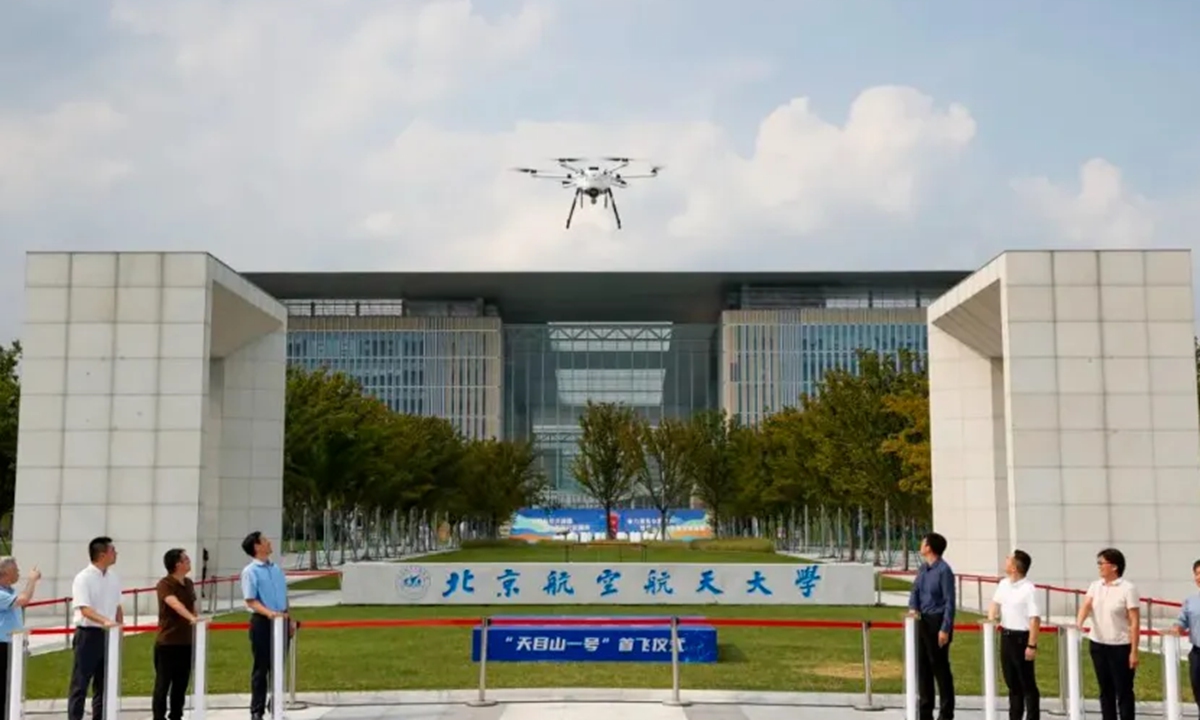
The Tianmushan No. 1, a new hydrogen-powered drone, has made a smooth landing in Hangzhou, East China's Zhejiang Province on August 26, 2024. Photo: Science and Technology Daily
The Tianmushan No. 1, a new hydrogen-powered drone, has made a smooth landing in Hangzhou, East China's Zhejiang Province, on Monday, and is expected to be a game-changer in the market with its long flight endurance, ability to operate in ultra-low temperatures, and eco-friendly design.
The Tianmushan No. 1 has transformed the application of traditional industrial Unmanned Aerial Vehicles (UAVs), offering strong market prospects due to its unique capabilities in continuous long-distance operation and its reliability in the cold, harsh conditions of North China, Xu Weiqiang, the chief designer of
The Tianmushan No. 1 said.
The Tianmushan No. 1 developed by a research team from the Tianmushan Laboratory has long flight endurance, adaptability to ultra-low temperatures, and eco-friendly features, Xu told the Science and Technology Daily, addressing the dominant problems among industrial drones.
With a technical capacity for continuous operations beyond 100 kilometers, the drone is equipped with an integrally molded fuselage with lightweight carbon fiber, giving it an empty weight of 19 kilograms and a maximum load weight of 6 kilograms. Its long-flight capacity comes from the completely self-developed hydrogen power system, which consists of hydrogen fuel cells and storage devices. The air-cooled fuel cell stack utilized in the system provides a maximum energy density of more than 1,000 Wh/kg, five to six times that of lithium batteries, Science and Technology Daily noted.
The Tianmushan No. 1 is a significant development in the technological innovation of the field of low-altitude economy as well as a momentum for the combination of intelligence general aviation and low-altitude economy industries, the laboratory said. In addition,
The Tianmushan No. 1 is the world's first hydrogen-powered drone fitted with an integrated parachute, meaning that should an accident occur during flight, it will automatically deploy the parachute to minimize the risk, according to media reports.
Global Times




